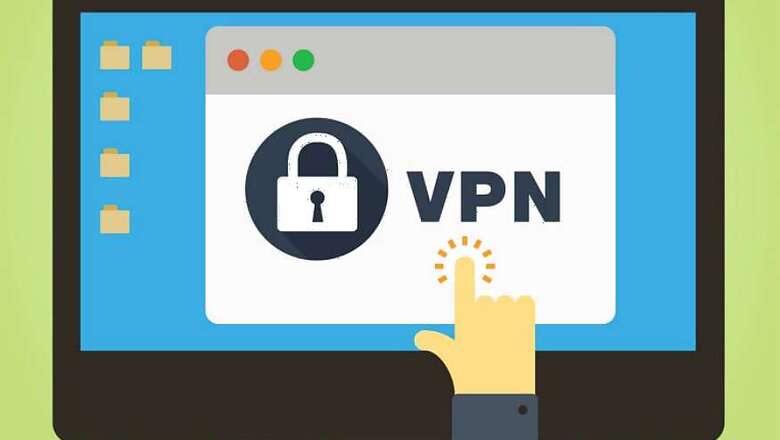
views
VPN, which stands for Virtual Private Network, is a rather common tool that is used by millions of users across the world. For many, VPNs are seen as effective tools to safely communicate and transfer files on the internet, and in some cases, as a workaround to location specific restriction to information imposed for specific reasons. While VPNs remain effective enterprise tools to enable remote collaboration on sensitive files, the public use of VPNs have often come across controversial scrutiny.
Benefits of using VPNs in India
Like other parts of the world, Indians often put VPNs to use for a variety of purposes. Put simply, a VPN masks your traffic to make it look like your IP address, or your location, is based elsewhere. Now, given the nature of this tool, it is often misconstrued that using a VPN is directly related to illegal activities. In truth, using a VPN has far greater implications than simply bypassing location restrictions, such as accessing websites that are banned for a specific area.
With today’s tense climate of cyber security, the biggest advantage provided by a VPN is keeping you secure as you browse online. Most VPNs that are worth their salt not only anonymise your actual internet address, but also offer industry standard 256-bit AES encryption to secure you from anyone tracking your online activity. This can be absolutely critical in helping you protect your data, especially during financial transactions. While it is not absolutely unbreakable, it is still exponentially safer to use a secure network to make your transactions, so that your passwords, card details and other such sensitive elements are not stolen.
Furthermore, using a VPN can let you access region-specific websites that may be legal, but not accessible in your country. This can help you read a wider selection of articles from publications across the web, or even view content that has been made elsewhere.
Is it legal?
With such benefits at hand, it is absolutely crucial to note that the simple activity of using a VPN is not illegal in India. In fact, there are absolutely no laws around using a VPN in India, so as long as you are using a VPN for no illegal activities, there should be nothing for you to worry about.
That said, the reason why VPNs get such a bad reputation is for their use in activities that are deemed illegal in India. The biggest and most common use case here lies in accessing content blacklisted by the Indian government (such as pornography), or torrent sites that facilitate the distribution of pirated content. The latter is the most common case of prosecution, and it is copyright infringement and creation of pirated content, and not the use of VPN, that can land you in legal trouble.
What are the charges?
As a result, if you are tracked down while using a website that lets you view, download and distribute content that is illegally uploaded (i.e. hosted online without paying due royalties to the creator), the Indian government may prosecute you under Sections 63, 63A, 65 and 65A of the Copyright Act, 1957 under the Constitution of India. If you are caught downloading an unauthorised copy of a movie, or streaming it from a website that hosts it illegally, then you may be subjected to legal prosecution amounting to up to three years of imprisonment, and a penalty of up to Rs 3,00,000.
As a result, you as a user of the internet in India are completely in the clear to use a VPN service, and doing so is in fact recommendable given the risks of malware and ransomware floating around across various parts of the internet. However, it is important for users to exercise their judgement, and avoid accessing any website or content that can amount to copyright infringement by the definition of the internet in India.




















Comments
0 comment